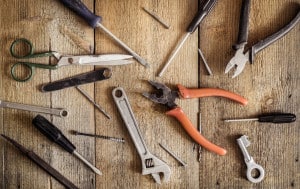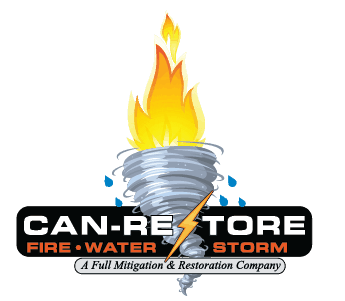Looking to manage a water damage restoration project?

Where Does Water End Up?
We all know that water flows downhill, so when you have water in your house, you know it’s not going to stay in one place. When you have a flood or a leak or even a dripping pipe that isn’t noticed for a period of time, what you’re left with is water inside your house, generally in places where you really don’t want it. These places include the cavities in between walls and structural supports, in pockets underneath counters, cabinets, and appliances, and under flooring and carpeting where you can’t see it.
What Does Water Intrusion Do to You?
Besides leaving everything wet and soggy and sometimes unusable, water can cause a serious and often irreparable amount of damage, especially if it isn’t treated properly. The first and most dangerous result of water damage is mold.
Mold grows where it’s warm and wet and where there is lots of mold food, which includes everything from organic materials like wood and paper, to common things like dust and dirt. Which pretty much describes the contents of most homes. So mold will feel right at home when there’s water in your house.
Mold is gross and smelly but it’s also a hug health risk. When exposed to large amounts of mold over time, symptoms can present themselves that can make life miserable. These symptoms can include minor issues like stuffy nose and itchy eyes to more serious complaints such as skin rashes, headaches, fatigue, respiratory issues, and even neurological disturbances.
What Does Water Do to Your House?
Mold isn’t just damaging to you and your body, it’s also damaging to the structure of your home. Mold works to break down the material it’s growing on. It does this by excreting digestive fluids to decompose the material in order to extract nutrients. In the process it slowly destroys the surfaces in your home including wood, drywall, fabric, and even the structural elements of your home.
In addition to mold, water can cause damage to your whole house. It can damage the foundation and cause erosion if left untreated, it can cause materials to expand and crack or break, and it can destroy insulation, drywall, appliances, and flooring, just to name a few.
Why Can’t I DIY the Water Cleanup?
You’ve gotten a good idea what water can do to your home, so now you need to know why you shouldn’t clean it up yourself. There are 3 main reasons:
• Lack of equipment
• Lack of training
• Lack of experience
Professional water restoration technicians have specialized equipment designed to extract the water from all areas of your home including under floors, inside wall cavities, and under cabinets. In addition to the extraction equipment, they have the tools to completely dry out your house including dehumidifiers, negative pressure fans, and ozone generators.
When the water is all out, it’s time for the repair and restoration. This is a huge part of the process and requires special training and the experience to understand structural damage as well as surface issues. And don’t forget about mold identification, removal, and remediation. This is one of the most important steps and it must be done right to ensure effective and complete treatment without risk of exposure to the rest of your home or individuals coming in contact with it unnecessarily.
If you’ve had a flood or a leak, you understand what a nightmare it can be to deal with the aftermath, even if it’s not a huge amount of water. The key to a successful cleanup is professional attention as quickly as possible, and not a fly-by-the-seat-of-your-pants DIY mop up.
Click or call to contact Can-Restore for help when you need to manage water damage restoration by calling (770) 735-2695.

